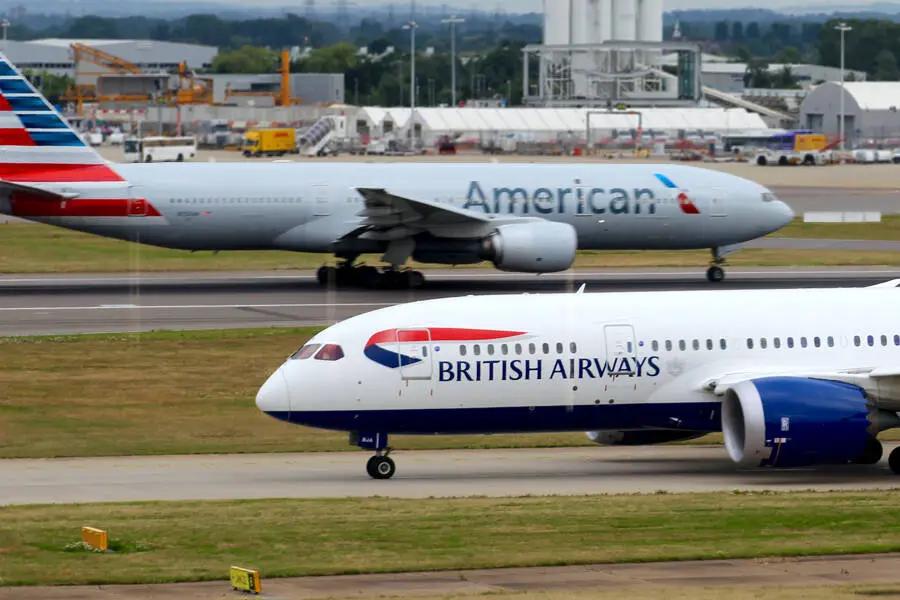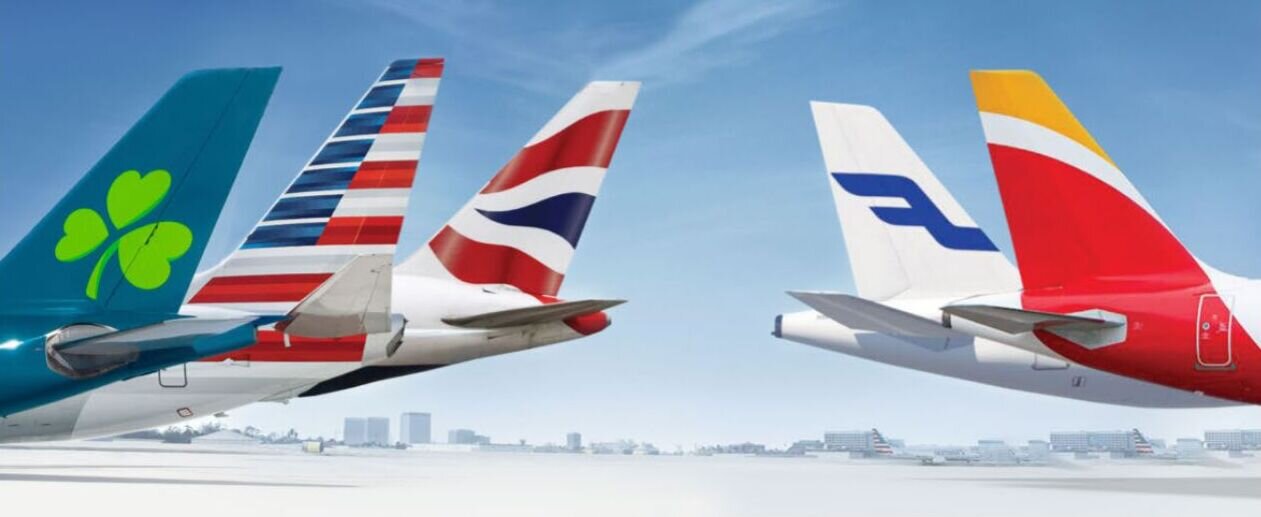Competition and Markets Authority accepts deal to close BA/AA transatlantic investigation
Links on Head for Points may support the site by paying a commission. See here for all partner links.
The long-running UK anti-trust investigation into the transatlantic joint business between American Airlines, Aer Lingus, British Airways, Finnair and Iberia has finally drawn to a close, with the Competition and Markets Authority (CMA) agreeing to accept binding commitments from the airlines.
This brings an end to a process that began in 2018 and had the potential to force BA and its partners to make significant changes to how they work together across the Atlantic.
What was the CMA investigating?
The case centres on the transatlantic joint venture between British Airways, American Airlines, Iberia, Finnair and Aer Lingus. The joint venture allows them to operate as a single business for flights between Europe and the US.
Consider it government-approved collusion, with the involved parties permitted to co-operate once they have the approval of the relevant regulatory bodies.
In practice, this means they can:
- Coordinate flight schedules and capacity
- Share pricing and revenue
- Offer joint marketing and sales
- Share costs and profits on key routes
Put simply, the five airlines put all the money from transatlantic ticket sales into a pot and share it out under a pre-agreed formula. It makes zero difference to BA if you fly BA, American or Finnair on these routes – BA gets the same cut of your money regardless due to what is known as ‘metal neutrality’.
Joint ventures are the closest form of co-operation in the aviation industry, bar outright acquisition or merger. They are relatively common: Air France, Delta, KLM and Virgin Atlantic operate their own JV across the Atlantic whilst BA, Iberia and Qatar Airways have a joint venture to a whopping 60 countries via Doha.
Both BA and Virgin Atlantic also operate JVs with China Southern and China Eastern respectively. British Airways, Finnair, Iberia and Japan Airlines have a joint venture covering Japan.
In this case, the Atlantic Joint Business Agreement, as it is officially called, was originally approved by the European Commission in 2010, with the CMA taking over as the responsible regulator following Brexit. It initially launched between AA, BA and Iberia, with Finnair joining in 2013 and Aer Lingus in 2021.
In order for it to be approved, the airlines committed to making landing slots available at Heathrow or Gatwick to competitors who wanted to launch London-Dallas, London-Boston, London-Miami, London-Chicago or London-New York. These concessions were binding for ten years.
In 2018, with the initial ten-year approval period coming to an end, the CMA launched an investigation into the Atlantic Joint business in order to “review afresh the competitive impact of the agreement in anticipation of the expiry of the commitments.”
Covid naturally got in the way and the CMA decided to extend the 2010 measures, allowing both the Atlantic Joint Business and the airlines operating flights on the slot remedies to continue. A re-tendering process in late 2023 awarded a number of slots to Virgin Atlantic and Delta, including a new pair of slots on the London – Boston route:
- London – Boston was awarded to Virgin Atlantic
- London – Boston continued with Delta Air Lines
- London – Dallas (via Atlanta) continued with Delta Air Lines
- London – Miami continued with Virgin Atlantic
In early 2025, the CMA published the joint venture’s proposed remedies for consultation with five airlines responding that the proposals did not go far enough in alleviating competition concerns.
After a bit of back and forth, the Atlantic Joint Business suggested further legally binding commitments and in July the CMA published its intention to accept the proposals.
On 6th August, the CMA formally accepted the binding commitments and announced it was closing the investigation “with no decision being made as to whether the Competition Act 1998 has been infringed.”
What has changed to the Atlantic Joint Business?
After years of back and forth, the CMA has now agreed to accept binding commitments from the airlines to address competition concerns. These include:
- Giving airline competitors daily slot pairs at London airports for three routes, including to Boston, Miami and Chicago
- An additional London – Boston slot pair if the overall number of flights operated by competitor airlines on this route (without the above slot remedy) drops below two per day
- The Atlantic Joint Business airlines flying a minimum number of local passengers (those that start and end their journeys) between London and Dallas each year, which the CMA says will “protect against a reduction in services on the route and help to constrain prices”
- Support competing airlines on the Boston, Chicago and Miami routes through other measures including connecting passengers on preferential terms
A tender process for slots for the next summer season (from late March to late October 2026) will take place this Autumn, although based on the existing interim measures I think we can expect Virgin Atlantic and Delta to operate most if not all of these.
These commitments will remain in place for at least six years, and possibly longer if the CMA determines that competition has not sufficiently improved.
What does this mean for you?
Not much, given that the new remedies are largely a continuation of the existing, 2010-era conditions.
American Airlines, Aer Lingus, British Airways, Finnair and Iberia will be able to continue operating as a single airline, with all revenue and profits pooled and divided under a secret formula.
The five airlines do not care which of them you fly between Europe and the US, only that you fly one of them rather than any of their competing airlines.
On transatlantic flights you only have the illusion of choice, with three major joint ventures in operation considerably curtailing competition between airlines. These are:
- The Atlantic Joint Business (American Airlines, Aer Lingus, British Airways, Finnair and Iberia)
- The Atlantic Plus joint venture (Air Canada, Austrian Airlines, Brussels Airlines, Eurowings, Lufthansa, SWISS and United Airlines)
- The Air France, Delta, KLM and Virgin Atlantic joint venture
If you want to get even further into the weeds you can see the CMA’s publication of the investigation here.





 Rhys
Rhys 





Comments (51)